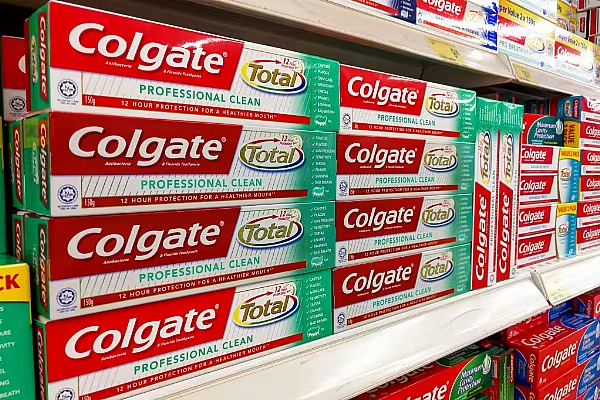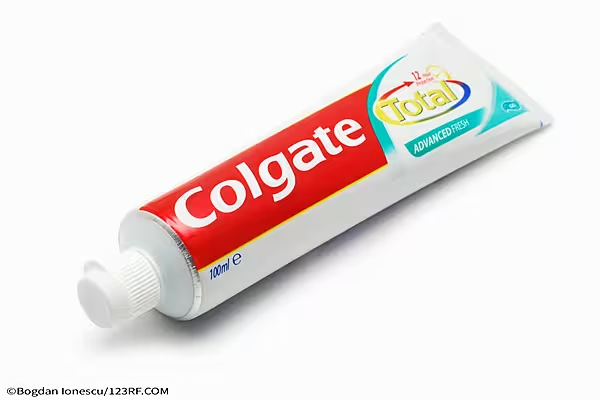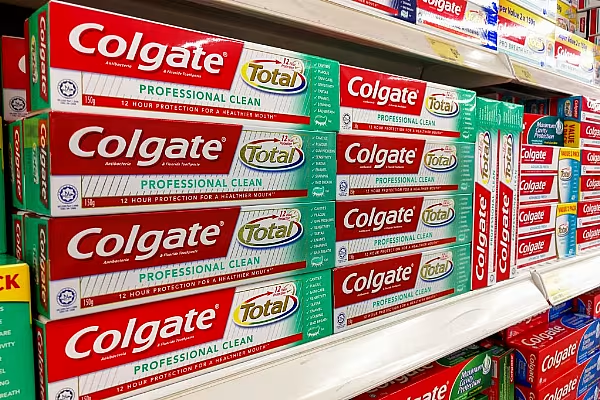Earlier this month, Colgate-Palmolive unveiled what it said was a 'world first' for the toothbrush industry; an app-enabled electronic toothbrush with artificial intelligence.
The brush, dubbed the Colgate ‘Smart Electronic Toothbrush E1', can provide users with real-time feedback about their brushing technique, and enable them to crowdsource toothbrushing data via Apple's ResearchKit, the company said.
“Our goal is simple, we want people to have their healthiest smiles by brushing their best,” a Colgate-Palmolive spokesperson said.
Fast forward to the end of the month, however, and smiles at the FMCG giant may be a bit more forced.
Sales Performance
Last Friday, Colgate-Palmolive reported sales of €3.9 billion in its fourth quarter, an increase of 4.5% on the same period last year. If you strip away positive currency effects, acquisitions and divestments, organic sales were up 2.0%, while the business saw 'healthy' volume increases in Europe, North America and Latin America.
Analysts were quick to point out, however, that the company's organic sales growth was considerably below consensus of 3% to 3.4%, while gross margins were down to 59.8% in the quarter, from 60.4% a year earlier.
Colgate has stressed that this margin impact was due to higher raw material costs and packaging, but not all are convinced, saying that the performance hints at stagnation at the business.
Commenting, Bonnie Herzog of Wells Fargo said that the results show that "Colgate remains vulnerable to macro uncertainty and operational challenges", while Deutsche Bank markets research analyst Steve Powers told Reuters that the business results were "disappointing, with the company missing on organic growth for the fifth quarter in a row".
Increased Advertising
Looking ahead, Colgate-Palmolive chief executive Ian Cook stressed the business' focus on brand building over the coming year.
Forecasting a mid-single-digit net sales increase and low to mid-single-digit organic sales growth in 2018, Cook said that the business would be increasing its advertising budget this year, having already increased investment in this area in 2017.
"We intend to increase our advertising investment in 2018 and to maintain the continuity of that investment throughout the year in support of new products, our base businesses and longer-term consumption-building activities," he said.
It will also look to reap the benefits from its recent acquisition of two skin care brands, PCA Skin and EltaMD Skin Care, for $100 million late last year, which are largely sold through professional outlets and online. The deal, which is expected to close in the first quarter of 2018, will increase the group's presence in the premium skin care bracket.
But at the same time, the "uncertainty in global markets" highlighted by the company in its most recent results is unlikely to see it implement too much change to its pricing strategy, with lower pricing evident across almost all its divisions last year.
Build From Europe
One of the stand out divisions for Colgate in its most recent quarter was arguably one you might not expect - its Europe division outperformed all others, with net sales rising by 13.0%, and organic sales up by 2.0%; and this despite lower pricing.
"We don't think the model is broken," Cook said in an analyst call following the publication of its results last week. "We are very pleased to see the positive and continuing reaction in markets such as Europe and North America. Europe, a part of the world that has been flat for quite a long period of time."
In oral care, the business enjoyed toothpaste market share gains in Germany, Italy, the Netherlands, Belgium and Austria, with growth largely driven by premium products such as its Colgate Enamel Strength, Colgate Natural Extracts, Colgate 360° Advanced Whole Mouth Health and Colgate 360° Advanced Max White Expert White manual toothbrushes.
Premium products also helped lift other categories, with Palmolive Naturals and Palmolive Gourmet growing its shower gels business, and Soupline Parfum Supreme growing its fabric conditioners range.
Colgate-Palmolive has proven over the years that it is proactive on the new product development front, and each of its divisions saw a comprehensive product rollout last year.
But it is in Europe - a market that many analysts might consider stagnant - the fact that the more premium products in its portfolio are gaining traction amongst a consumer base that appears comfortable with spending more on daily essentials.
If Colgate can capture more of these customers in its other divisions, it may give analysts a little more to smile about - regardless of whether their toothbrush boasts artificial intelligence or not...
© 2018 European Supermarket Magazine – your source for the latest retail news. Article by Stephen Wynne-Jones. Click subscribe to sign up to ESM: The European Supermarket Magazine.













